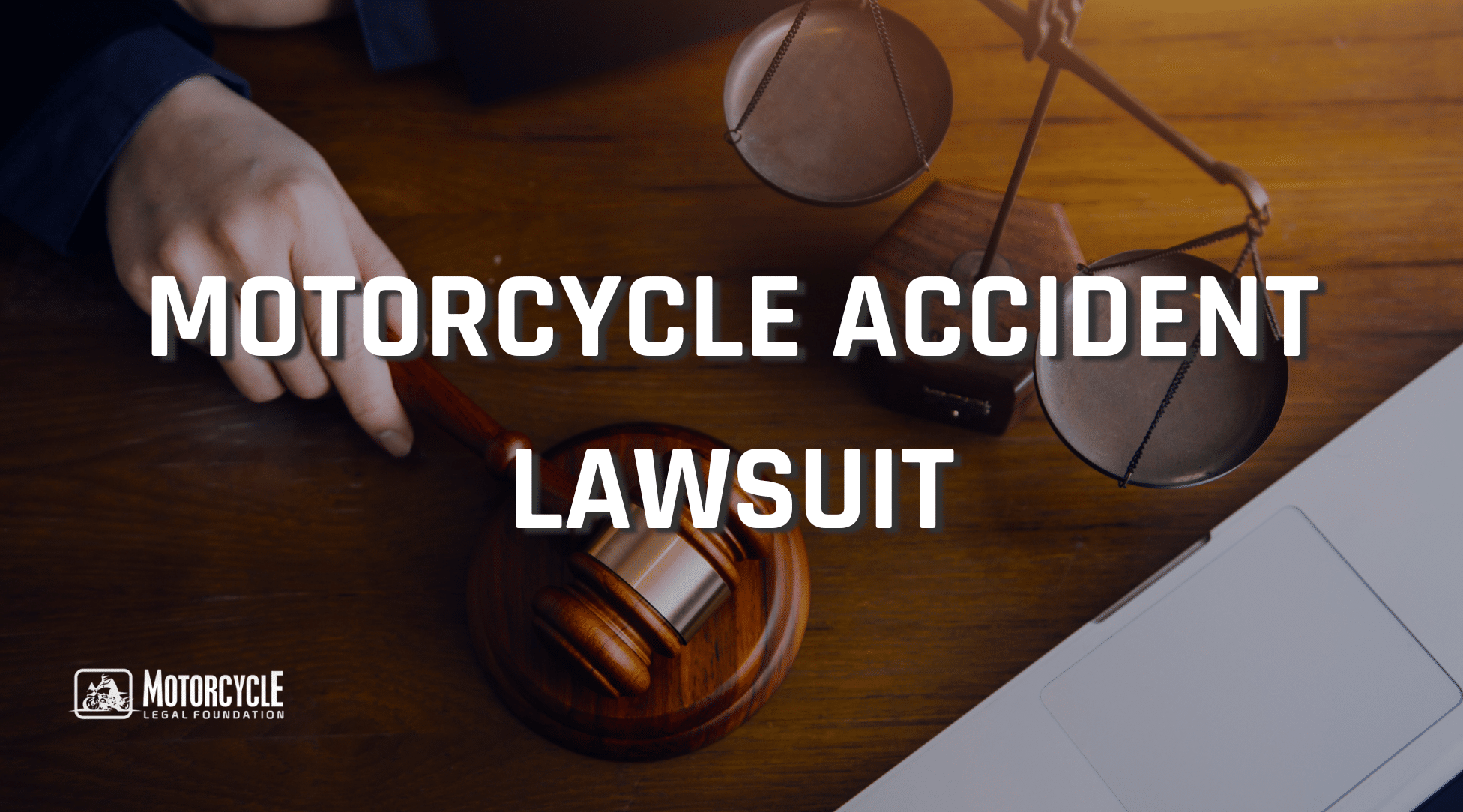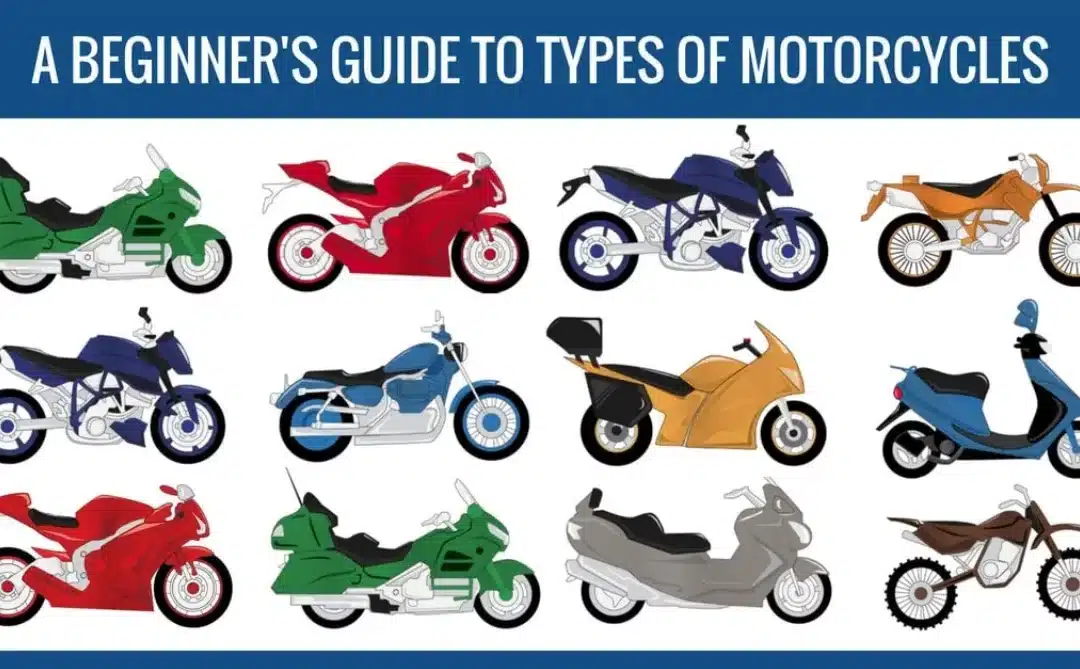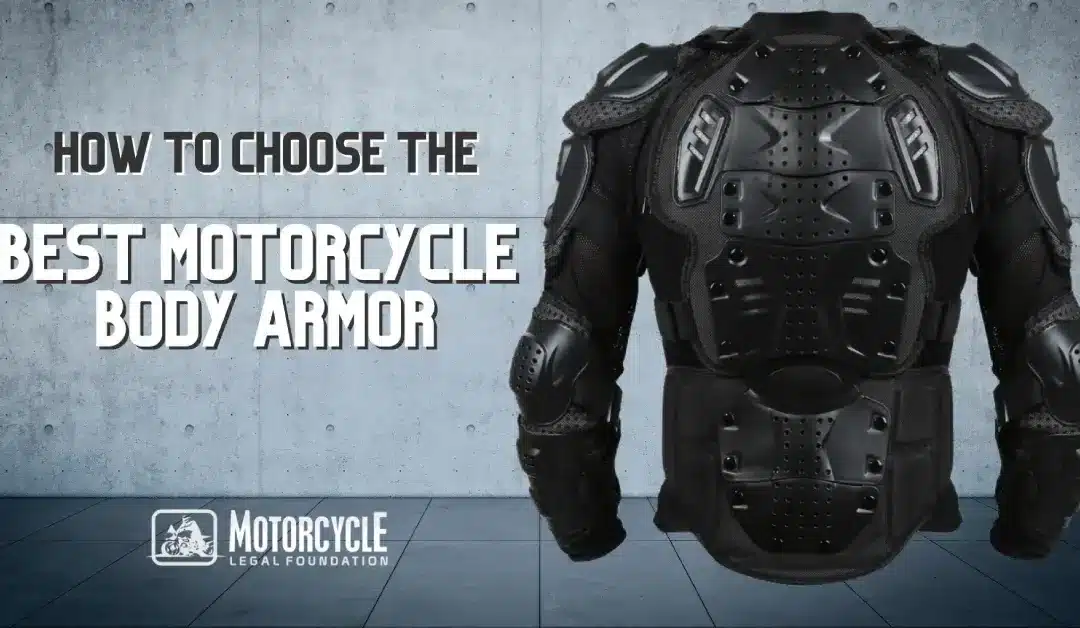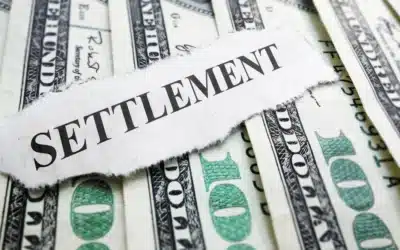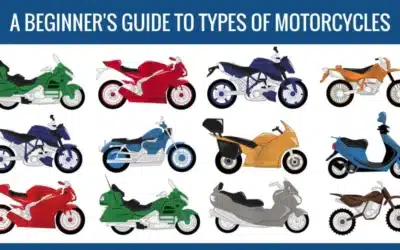In a world where the open road beckons with the promise of two-wheeled freedom, there’s a stark reality that all too often casts a shadow – motorcycle accidents. Year after year, countless riders confront injuries or, worse, victims of these unfortunate events.
According to the most recent annual data from the National Highway Traffic Safety Administration, 82,686 riders were injured, and more than 5,932 were killed in motorcycle accidents. This guide gives you an overview of what to expect should you be injured and need to file a motorcycle accident lawsuit against someone who caused the crash.82,686 84,000 riders were injured, and more than 5,932000 were killed.
LEGAL GROUNDS FOR FILING A MOTORCYCLE ACCIDENT LAWSUIT
Someone whose fault caused a motorcycle accident can be compelled to pay compensation for injuring you. Depending upon how an accident occurred, at-fault parties could be other drivers for negligent or careless operation of their vehicles, a government agency for poor road design or inadequate maintenance, or the manufacturer of a defective motorcycle part that failed and caused a crash.
Determining the Degree of Fault
The cause of a motorcycle accident helps identify the parties responsible for it and the degree of fault on each of them. Common causes of motorcycle crashes include the following:
- Opening a car door into the path of a motorcycle.
- Motorists making a left turn and not yielding to an approaching motorcycle.
- Drivers change lanes without checking blind spots for the presence of a motorcycle.
- Defectively manufactured motorcycles or parts that may fail to perform correctly.
- Potholes, poorly maintained roads, and debris on a roadway causing a rider to lose control of a motorcycle.
Depending upon the factors causing a crash, there could be multiple parties at fault. For example, a motorcycle accident that began when the driver of a car suddenly changed lanes to avoid a pothole and collided with a motorcycle in the adjacent lane may, in addition to the driver, be the fault of the state or local government for not maintaining the road. No matter who is at fault, at this stage it’s best to start thinking about contacting an attorney regarding your accident.
DETERMINING LEGAL LIABILITY IN A MOTORCYCLE ACCIDENT LAWSUIT
This critical step can significantly influence the outcome of your case. Here, we shed light on the essential aspects a judge uses to determine who bears legal responsibility:
- Negligence at the Core: Liability hinges on proving negligence – that the at-fault party acted carelessly or without reasonable caution, leading to the accident.
- Evidence: Compelling evidence is your ally. Photos, witness accounts, police reports, and videos that show how the at-fault party contributed to the accident are imperative.
- Common Culprits: Common causes like failure to yield, lane changes without checking blind spots, or opening car doors into a motorcycle’s path.
- Shared Liability: Sometimes, multiple parties share blame. Identify all potentially responsible parties carefully.
- Expert Witnesses: These specialists dissect technical aspects like vehicle dynamics and road conditions to bolster your case.
- State Laws: Laws vary, affecting liability. Your attorney should grasp your state’s laws.
- Insurance Impact: Even with clear liability, insurance coverage matters. Your attorney may assess this landscape.
Partnering with a seasoned attorney is essential. They’ll light the path to establish liability in your favor.
WHAT HAPPENS IF YOU’RE PARTIALLY AT FAULT?
It may turn out that you were partially at fault either in causing an accident or the injuries you suffered. For instance, not wearing a helmet as required by the law in your state may cause your injuries to be more severe than they might otherwise have been. State law where the accident occurred determines what effect your fault will have on recovering damages.
The vast majority of states use a comparative negligence rule. Jurors weigh the evidence and determine the degree of fault on the injured party and proportionately reduce the damages awarded by that percentage. If jurors believe that not wearing a helmet made you 20% responsible for your injuries, they reduce the compensation awarded by 20%.
Four states, Alabama, Maryland, North Carolina, Virginia, and the District of Columbia, use a different rule when an injured person sues for damages. Those states have contributory negligence laws that bar an injured person from recovering anything in a motorcycle accident lawsuit when evidence shows them to be as little as 1% at fault.
It’s always good to be prepared to ask the right questions when consulting with your lawyer about the details of your situation.
Have You Been Involved In A Motorcycle Accident?
Our professional legal team screens submissions and assigns cases to some of the best motorcycle lawyers in the US.
How Can You Collect In a Motorcycle Accident Lawsuit?
The evidence gathered by your motorcycle accident attorney must show that the reckless, careless, or negligent behavior of another party caused you to be injured. The plaintiff, the person injured and suing for damages, has the burden of proving each of the following elements:
- A legal duty owed by the party being sued toward the plaintiff.
- A breach of that duty.
- Existence of injuries suffered by the plaintiff.
- Breach of legal duty was the cause of the injuries.
The following are some of the damages you may recover:
Medical bills
Injuries in a motorcycle accident can be devastating and require extensive medical care, rehabilitation, extended hospital stays, and surgical procedures. You may recover the costs of the care furnished to you and compensation for the anticipated cost of future medical care you may require.
Pain and Suffering
Compensation may be awarded for the physical pain inflicted upon you as a result of your injuries.
Mental Health
Depression, anxiety, post-traumatic stress disorder, and other forms of mental health issues may develop from the injuries and emotional trauma caused by a serious motorcycle collision.
Loss of Earnings
The severity of injuries commonly associated with a motorcycle accident may cause you to lose time from work. Compensation may include lost current wages in addition to earnings you may lose in the future either from being unable to work or from having a diminished earning capacity.
Property Damage
Reimbursement for the cost of repairing or replacing your motorcycle and other items of personal property, such as the helmet you were wearing, can be claimed as damages.
Punitive Damage
As the name indicates, the purpose of punitive damages is to punish someone for, particularly egregious behavior. It would depend on the facts, such as a driver who intentionally crashes into a motorcycle in a road rage incident.
Calculating Motorcycle Accident Damages
The purpose of awarding damages in a motorcycle accident lawsuit is to make the injured party whole again. Some types of damages, such as lost earnings and medical expenses, can be easily determined from bills and work records.
Other damages, such as pain and suffering or mental anguish, present more of a challenge with the amount awarded based on the severity of the injuries suffered by a plaintiff and the conduct of the party responsible for causing them.
The Average Amounts for Motorcycle Accident Settlements
The amount awarded in a motorcycle accident settlement depends on the degree of fault on the parties’ part, including the victim, and the severity of the injuries. The damages recovered at trial or through settlement differ from one case to the next.
A jury in New Jersey awarded a 67-year-old man $2.645 million in damages against a county for broken bones the man suffered when his motorcycle hit two potholes and crashed. A shattered ankle that ended a motorcycle rider’s military career persuaded jurors in Georgia to award the injured rider $8 million in a motorcycle accident lawsuit filed against a trucking company. Two examples of how outcomes in motorcycle accident lawsuits may dramatically differ.
Settlement Factors in a Motorcycle Accident Lawsuit
Several factors influence whether a case ends in a settlement or a verdict after trial.
The Perceived Value of the Potential Case
Putting a value on a case is not an exact science. For example, pain, suffering, and mental anguish aren’t readily calculated. Some lawyers and insurance companies use a multiplier to estimate the value of a claim.
With the multiplier method, you’ll add medical expenses and other out-of-pocket damages and multiply the result by a number from 1.5 to 5. The lower number is used for minor soft-tissue injuries, while a higher multiplier is used for severe injuries that may cause permanent disability.
For example, if your lost earnings, medical expenses, and other out-of-pocket expenses total $20,000 and the severity of the injuries were assigned a multiplier of three, pain and suffering would be valued at $60,000. Differing perceptions about value may delay or prevent settlement.
A second method used to place a value on pain and suffering is the per diem method. It uses the number of days from the date of your motorcycle accident until the day your doctor says you reached maximum medical improvement and releases you from care, which either means that you fully recovered or that no further recovery is anticipated. The number of days is multiplied by a daily dollar value selected based on the severity of the injuries and their impact and may continue to have on your daily life.
For example, if your doctor releases you after 200 days of care and a $250 daily amount is chosen, the value of pain and suffering damages would be $50,000 (200 days x $250 a day). Your lawyer may choose a higher per diem amount for injuries that leave you with a permanent disability.
The Plaintiff’s Damages
How injuries affect a particular person will influence the valuation of a claim. A broken ankle that ends the plaintiff’s military career has a higher value than the same injury to someone whose occupation and lifestyle is only slightly affected, i.e., a secretary.
The Likelihood of the Defendant’s Liability
There is a correlation between the strength of the plaintiff’s evidence proving fault and the settlement value of a claim. A weak case usually reduces what an insurance company is willing to offer. Evidence of fault on the part of the plaintiff also would reduce the amount offered.
Insurance Compensation
Regardless of the estimated value of a claim, the amount of insurance coverage available to pay influences settlement. A plaintiff may be forced to accept the policy limits to settle a claim when the at-fault party has few assets to go after to satisfy a higher verdict.
Bias Against Motorcycles
There are people, including some who may end up on a jury, who perceive motorcycle riders as reckless or immoral. This bias may cause an insurance company to be more inclined to keep settlement offers lower even if it risks going to trial. A plaintiff’s response must build a strong case supported by solid evidence proving fault and damages.
Settlements vs. Trials
A motorcycle personal injury attorney will advise you of the pros and cons of accepting a settlement offer versus going to trial. You need to rely on the experience and knowledge of your attorney for guidance in making the decision.
DEFENSES IN A MOTORCYCLE ACCIDENT CASE
In motorcycle accident lawsuits, comprehending the potential defenses deployed by the opposing party is akin to navigating challenging terrain. Here, we shed light on some common defenses often encountered in the world of motorcycle accident cases:
1. No Negligence/Disclaiming Fault: A frequent defense stance is the argument that the at-fault party exhibited no negligence or carelessness that played a role in the accident. They may firmly assert that they operated their vehicle responsibly, placing the blame squarely on the motorcyclist’s actions.
2. Comparative Negligence: When the injured rider shares some measure of fault for the accident, the defense often invokes comparative negligence. This allows them to assert that the motorcyclist’s conduct contributed to the accident and, consequently, should diminish the compensation awarded.
3. Causation Challenges: The defense may contest the causal link between the alleged negligence and the injuries sustained. Their stance might be that the injuries were pre-existing or caused by factors unrelated to the accident.
4. Damages Disputes: Another strategy entails challenging the extent and nature of the damages claimed by the injured party. They may scrutinize the severity of injuries, the necessity of medical treatments, or the impact on the injured rider’s life.
6. Statute of Limitations: The defense could assert that the injured party filed the lawsuit beyond the statute of limitations, rendering it legally void. This underscores the importance of prompt legal action.
7. Pre-Existing Conditions: They may contend that the injured party had pre-existing medical conditions that contributed to or exacerbated the injuries, thus diminishing their liability.
8. Evidentiary Challenges: If the evidence is found wanting or inconclusive, the defense may argue that there’s insufficient proof to establish their liability.
9. Third-Party Blame: In certain scenarios, the defense might attempt to shift blame onto a third party, asserting that their actions or negligence constituted the primary cause of the accident.
10. Assumption of Risk: The defense could posit that the injured rider willingly embraced the inherent risks of motorcycle riding, fully aware of the potential perils.
Mastering these defenses requires the expertise of a well-prepared attorney well-versed in motorcycle accident cases. Your attorney will counter these arguments, construct a case, and safeguard your rights, ensuring you can obtain equitable compensation for your injuries and losses.
Have You Been Involved In A Motorcycle Accident?
Our professional legal team screens submissions and assigns cases to some of the best motorcycle lawyers in the US.
How Long Does a Motorcycle Accident Lawsuit Take?
Once you and your attorney make the decision to file a lawsuit, it progresses through the following stages.
The Motorcycle Accident Lawsuit Process
- Service of the answer: This is the written response from the party being sued, the defendant, to the allegations raised in your lawsuit. Laws vary from state to state, but the defendant could have up to 30 days from when the lawsuit was served in order to file an answer to it.
- Discovery: This phase of the process is when each side in the lawsuit tries to gather information about the various issues. Depositions, bills of particulars, interrogatories, demands for the release of medical records, and physical examinations are only a few of the methods the parties may use to gather information about fault and damages. A thorough discovery process can take months to complete.
- Motions: Motions are written requests asking the court to resolve a legal issue or other matter prior to the case actually going to trial. Motions could be based upon a party’s failure to comply with discovery requests.
- Conferences: Depending upon state laws and local court rules, conferences could be scheduled requiring the attorneys for the parties to meet with a judge to discuss the status of the case. These conferences are usually to ensure the case continues moving along toward trial or other resolution.
- Trial: Once all of the preliminary steps in the process are completed, the case is scheduled for a trial. It is at a trial when the plaintiff has the burden of producing evidence to prove fault on the defendant’s part in causing the accident and the extent of the injuries and other damages suffered by the plaintiff. A judge or a panel of jurors will determine if the plaintiff has met this burden of proof through a verdict in favor of either the plaintiff or the defendant.
How to Find the Right Attorney for Your Motorcycle Accident Lawsuit
When injured in a motorcycle accident, the attorney you choose should be an aggressive advocate who gives you the best chance to recover the compensation you need and deserve. You want someone with experience handling motorcycle accident lawsuits with a proven record of success through settlement and, when a reasonable settlement cannot be achieved, by taking the case to trial.
FAQ
Some, like medical bills, can be derived from records, while others, like intangible pain and suffering, remain subjective. The multiplier or per diem approach may be employed to assess these damages.
It is not recommended. Insurance companies often deploy their legal expertise, making it vital for an experienced attorney to safeguard your rights and adeptly navigate the legal process.
Indeed, time is of the essence. The statute of limitations for filing a motorcycle accident lawsuit varies from state to state. Consulting an attorney as soon as possible is paramount to ensure you know the deadline for initiating your lawsuit.
The extent of your injuries, whether major or minor, does not determine your eligibility to file a lawsuit.
Yes, filing a lawsuit in such cases is possible, but it is imperative to promptly report the incident to law enforcement and your insurance provider.
Depending on the laws in your state, the decision to forego a helmet during the accident could have repercussions. Some states have helmet laws, and non-compliance may influence your case.
Many motorcycle accident attorneys operate on a contingency fee basis, meaning they only collect fees if you secure a favorable outcome. Be sure to discuss fee structures during your initial consultation.
Document the accident scene, gather witness statements, adhere to medical advice, maintain records of medical bills, and, crucially, engage an experienced attorney early in the process to ensure your rights are shielded.

